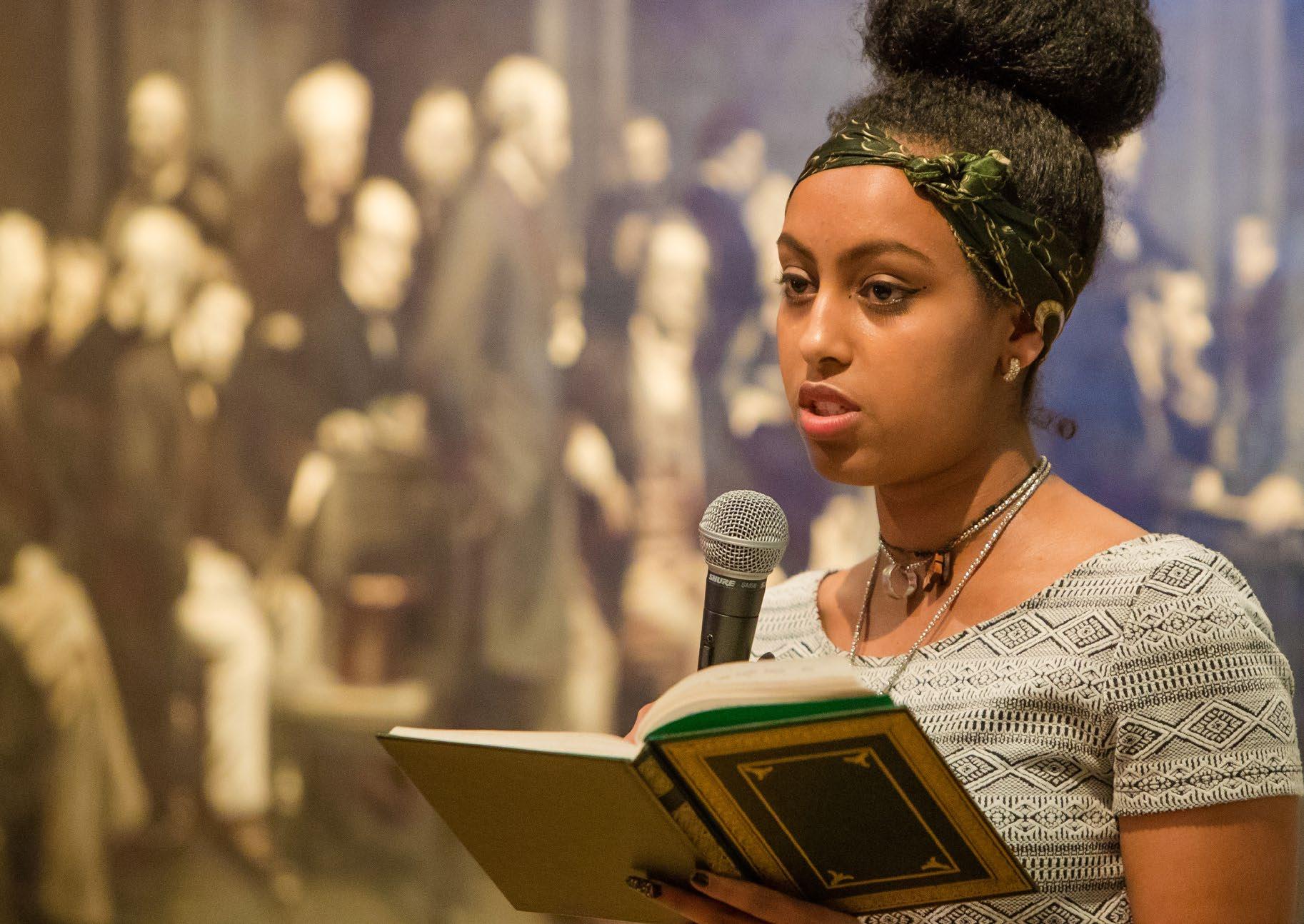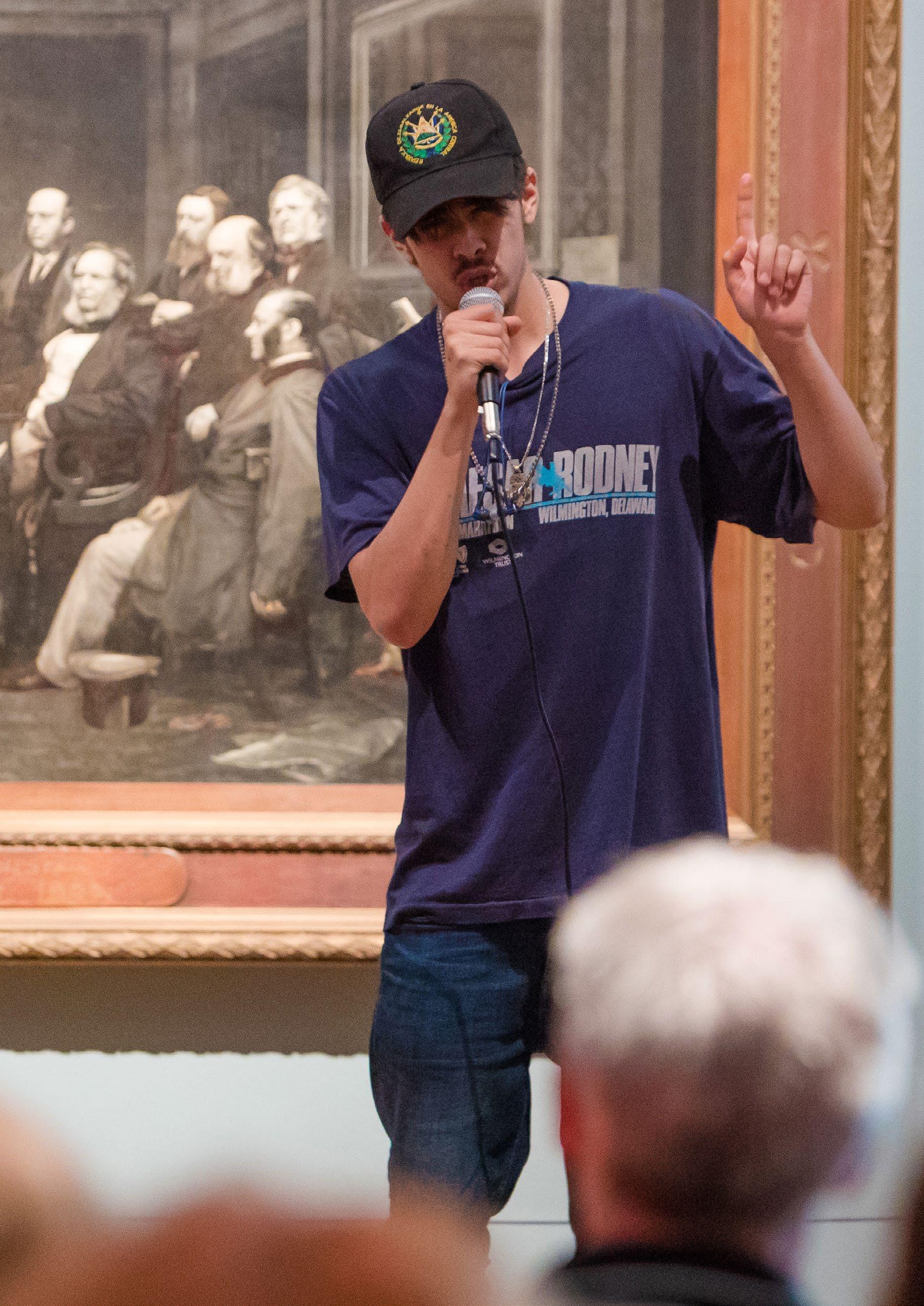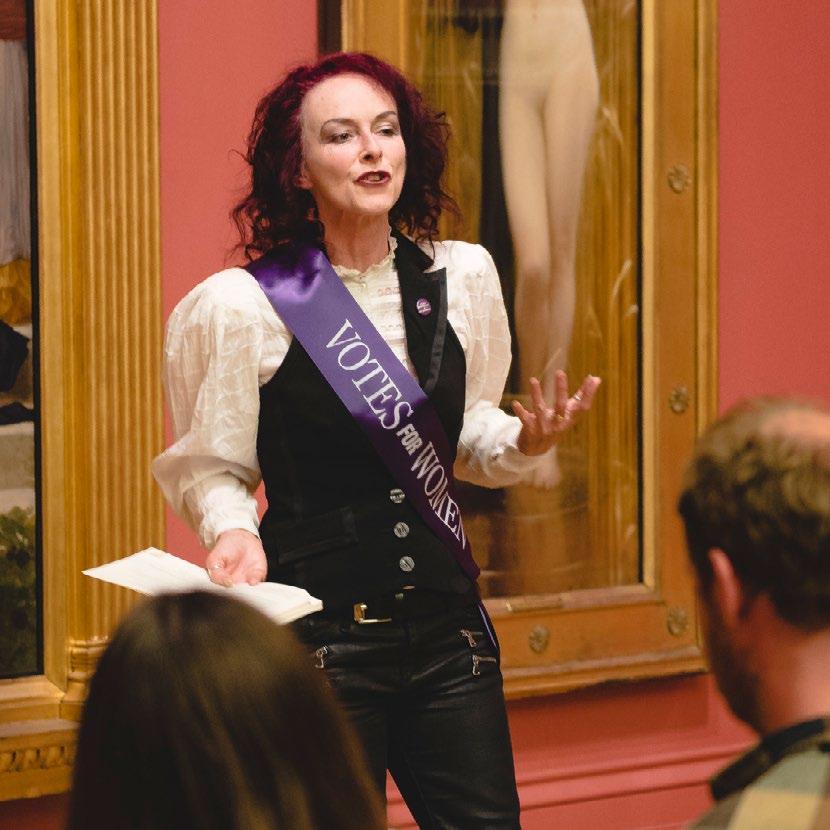
6 minute read
3.2 Opportunities
Digital Delivery
Alongside presenting significant challenges to Manchester Histories, the COVID-19 pandemic also creates opportunities to do things differently. During 2020, we reframed our work and, where possible, moved to digital delivery, including:
DigiFest 2020: celebrated 50 years of the Chronically Sick & Disabled Persons Act and Disabled People’s Rights. We delivered DigiFest 2020 completely online in a two-day broadcast live from Manchester Central Library. Over 3,000 people joined Manchester Histories to watch a wonderful montage of disabled people’s lives, histories, contributions, political struggles, and joyous creativity. This included exploring the positive legacy of Alf’s Act as well as the contemporary challenges that people experience today.
People’s River Project marked the bicentenary of Friedrich Engels’ birth and his connection to the industrial river Irk. We delivered online workshops and talks, socially distanced photography walks and produced an online tool kit for people to better understand the life and times of Friedrich Engels.
Through these experiences, we learnt that increasing digital delivery and engagement can support Manchester Histories to reach new audiences and create new partnerships. However, due to the global pandemic, high-quality digital content is more abundant as larger and better resourced cultural organisations move to online delivery. Consequently, we expect it to become increasingly challenging to reach and engage audiences online. Manchester Histories must improve our digital skills and capacity to meet this challenge.
Over the next three years, we will invest in our people and our technologies, so we have the resources to successfully engage people into the future. We will build on Manchester Histories substantial digital reach and recognise where we need support to develop our digital infrastructure and skills.
Living our values
During 2020, Manchester Histories have been exploring our values as foundations of what we do, why we do it and how we work with others to achieve it. We have been considering the interrelationship between our personal and organisational values as well as those of the wider heritage, arts and culture sector.
This process has been: • Promoted by: The devastating impact of the
COVID-19 pandemic on the health and wealth of our communities, heritage sector and society.
• Inspired by: Grassroots social justice movements, such as Black Lives Matter, Me Too and climate change activism.
• Concerned with: Political changes, such as Brexit, that have increased polarisation as disagreements come into sharp focus for those with opposing views. • Supported by: The Common Cause Foundation, a collective working to rebalance cultural values to create a more equitable, sustainable and democratic society.
Our staff, volunteers and trustees have participated in workshops, mentoring and partnership working with twenty-six culture and arts organisations.
Through this process we have developed Manchester Histories’ compassionate values (see Our Vision, Mission and Values) to continually inform our work and improve our impact by: • Sharing inspiring and uncomfortable histories and heritages.
• Letting our values guide our decision-making.
• Ensuring our values are reflected in our policies and actions.
• Working with partners, funders and sponsors who share our values.
• Being true to our values in how we work with staff, freelancers, volunteers and communities.
Going forward, Manchester Histories want to build on the Greater Manchester tradition of being part of the solution to the challenges we face. We want to connect people through histories and heritage, reducing polarisation and supporting people to develop respect and understanding towards each other, which is essential to our personal and shared wellbeing.
We believe that histories and heritage have powerful abilities to shape identities and bring positive changes to our lives and to our communities. As part of our commitment to living our values, Manchester Histories will create opportunities for the people we engage with to explore the views of others with curiosity, listen with compassion, and act with justice.
National Portfolio Organisation Art Council
Manchester Histories’ work is innovative and dynamic. We bring lesser told histories and heritage to life, often through creative expressions, such as visual art, music and performance. We work with communities that can face social and economic barriers to accessing quality cultural provision to democratise histories and heritage.
Our work’s ethos and quality resonate with the aims of the Arts Council in their National Portfolio Organisations programme. National Portfolio Organisations are arts and culture organisations that the Arts Council supports. They have been recognised as leaders in their areas, with a collective responsibility to protect and develop our national arts and cultural ecology. In 2018 history and heritage organisations, such as museums, were able to apply to be a National Portfolio Organisation. National Portfolio Organisations range in their size and scope. They receive excellent development support from the Arts Council, including funding, advice, training, evaluation and national exposure. Support currently lasts for four years to offer organisations stability and time to put their business plans into action. In return for their support, the Art Council expect high-quality standards alongside public accountability and a commitment to review and learn from work.
The current round of National Portfolio Organisations is due to end on the 31st March 2023 (extended by one year from 2022 due to the COVID-19 pandemic). It is currently unclear how the Arts Council plans to develop the programme after this time to meet the changing needs of art, culture and heritage organisations across the UK.
We are confident that Manchester Histories has a lot to offer the Arts Council Portfolio Organisations programme, and we plan to apply to the programme post-March 2023. In 2021 and 2022, Manchester Histories will continue to review our programme and structure to ensure we are in a strong position to secure a future place in the programme.

Radical Read, Manchester Art Gallery. Photo by Jonathan Keenan Photography.
4Aims

Aim One
Connecting people through histories and heritage
Manchester Histories will deliver unique events, projects and networks that connect people through histories and heritage.
Aim Two
Reaching new audiences in new ways
Manchester Histories will bring creative innovation to how we tell our stories to engage new audiences. We believe that history is for everyone, and it is our job to ensure it is relevant to peoples’ lives.
Aim Three
Building resilience and continuing to thrive
Manchester Histories will develop our infrastructure, resources, people and partnerships to deliver our ambitious aims.
Aim Four
Creating a sustainable and fair future for everyone
Manchester Histories will create opportunities to learn from the past and create a better future to benefit our local and global communities.
The four aims outlined in this Business Plan have been co-produced with staff, volunteers, trustees and partners to deliver Manchester Histories’ mission, vision and values and guide our work over the next three years.
The aims are purposefully broad in scope. Due to the impact of the COVID-19 pandemic, Manchester Histories will need to remain responsive to opportunities over the next few years with aims that allow for flexibility and innovation in uncertain times. Therefore, the areas of work outlined in this Business Plan will continue to evolve over the next three years. We have designed our aims to complement each other with some overlap, so in practice, work areas may deliver across several aims.
Manchester Histories’ Action Plan (2021 – 2024) is an operational document developed with our staff team that supports the delivery of this Business Plan. It outlines SMART objectives, outcomes, timescales, risks and resources for each area of work. It is a live document that will continue to be reviewed and developed over the next three years.









